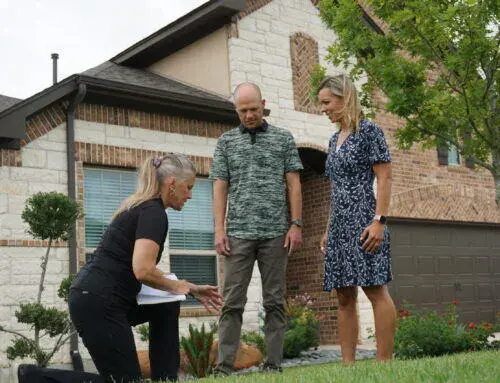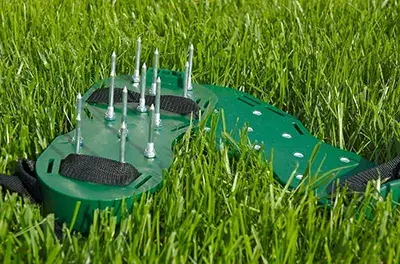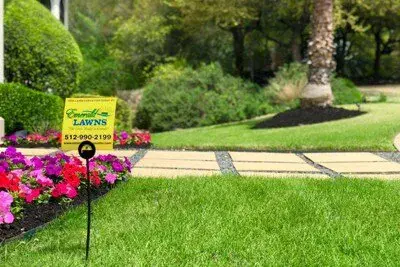As you may already know, Texas soil and seasons can be tough for growing nice turf.
To some of us, lawn-watering seems a great mystery. We know we need to water our lawns so the sun doesn’t scorch the grass.
But when is the best time to water your lawn?
How often can you water your lawn?
How deep should you water your lawn?
We can solve these mysteries for you. These watering tips will help you care for your lawn, no matter how high summer temperatures climb in central Texas.
When should you water your lawn?
Experts recommend you water in the morning. Any time before 10 a.m. is best. But it’s better to water in the early morning, between midnight and 6 a.m.
Luckily, many irrigation systems have timers that can water during set periods.
How much should you water in the summer?
During the summer heat, we recommend you water one inch, once a week only, and water deeply so your roots can grow deeper in search of the water. This will create a healthier lawn. However, this only works if you have deep soil.
Don’t know how much water your lawn gets?
Try setting a tuna or coffee can on the lawn. While you’re watering, time how long it takes for your sprinkler/irrigation system to reach one inch of water.
Lawns with shallow soil or rocky soil should be watered for shorter periods—twice per week, if your city’s watering schedule allows this. Always remember to water only during these arranged times.
Some additional watering suggestions:
- Do not water from noon to 6 p.m. This is the day’s hottest period. Water can evaporate and not sink into your lawn.
- If you have thatch, or built-up dead grass in between your living grass, this may keep water from sinking into your lawn. Have a professional rake out thatch so you can water properly.
- Bermuda grass and buffalo grass have very modest watering needs. If your city tightens watering restrictions, these lawns can go up to three weeks without being watered (depending on summer temperatures).
- Meanwhile, zoysia grass and St. Augustine grass can’t go longer than 2 weeks without suffering damage.
- Remember to adjust your watering level after rain. If you overwater your lawn, you may harm your lawn more than if you’d not watered at all.
- Check your irrigation system often for sprinkler heads. These may become damaged or aim toward the sidewalk and street. Either issue can waste water. Fix the problems, or call a professional to fix them for you as soon as possible.
If you still have questions or problems, please contact Emerald Lawns at 512-990-2199. As Central Texans that have helped care for thousands of lawns since 2006, we would love to help.





